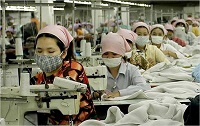Polymers Petrochemicals Bioplastics Recycling 19-01-2019 - Arhive
The prices of monoethylene glycol (MEG) in Europe are on a downward trend against the background of a wide supply of imported material, according to ICIS , citing market participants. Monoethylene glycol MEG prices Europe
Participants in the MEG market returned after the holidays, but demand is not as high as some sellers had hoped.
The prices of some deals fell below EUR700 per tonne, FCA NWE (North-West Europe). The spot prices for MEG truck delivery were in the range of EUR695-720 per tonne, FCA NWE.
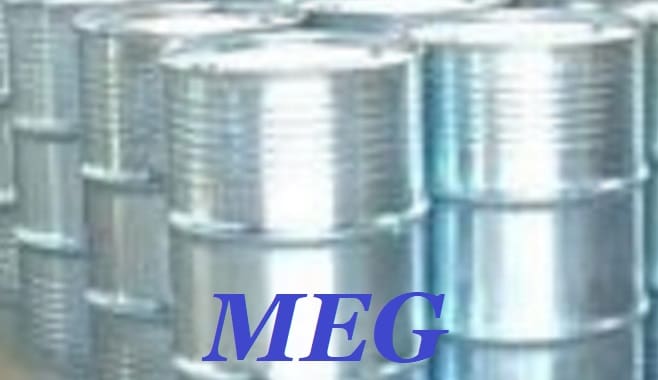
Asia adipic acid may extend gains as producers face margin squeeze
Asia’s adipic acid (ADA) market may extend gains as exporters from China – a major regional supplier – have raised prices to recoup margins amid low stocks.
Adipic acid is used in shoe soles (Source: View China Photo/REX/Shutterstock)
– Chinese producers raise prices by $20-30/tonne
– ADA spread over benzene narrows to $500/tonne
– Slowing demand may cap price uptrend
In the week ended 16 January, prices for cargoes originating in China were assessed $20-30/tonne higher at $1,050-1,100/tonne CFR (cost & freight) NE (northeast) Asia; while prices for other cargoes stood at $1,320-1,400/tonne CFR NE Asia, according to ICIS data.
Spot prices for China-origin cargoes rose for the first time after shedding 25% since mid-September, while prices for cargoes of other origins declined 15% over the same period, the data showed.
Restocking by regional end-users ahead of the Lunar New Year holiday had whittled down the inventories of Chinese suppliers, which then decided to hike offers this week by $20-30/tonne.
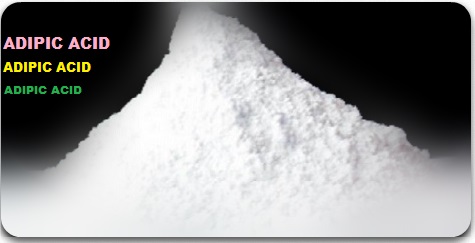
EU Commission clears BASF’s acquisition of Solvay’s polyamide business
The EU Commission has granted conditional clearance for BASF to acquire Solvay’s polyamide business in an important milestone for the transaction.
Closing is expected in the second half of 2019 after all remaining closing conditions have been fulfilled, including the sale of a remedy package to a third party.
During the approval process BASF made commitments to address the competition concerns of the EU Commission.
They require divesting parts of the original transaction scope to a third-party buyer, namely manufacturing assets and innovation capabilities of Solvay’s polyamide business in Europe.
BASF will achieve key strategic objectives from the acquisition and strengthen its polyamide 6.6 business significantly.
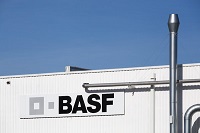
Thanks in large part to incentive programs by federal and provincial governments, Canada’s petrochemical industry is headed for its biggest surge of expansion spending in five years in 2019 – which is welcome news to the manufacturing sector, plastics processing in particular.
Capital spending on industrial chemical industry projects in Canada this year is expected to jump by 65 per cent to $1.9 billion, the highest since $2.2 billion in 2014 and third-highest in a decade, according to a year-end members survey by the Chemistry Industry Association of Canada (CIAC), which represents producers of 75 per cent of the country’s chemical products by value.
Employment is expected to rise by about four per cent or 640 jobs to 17,670.
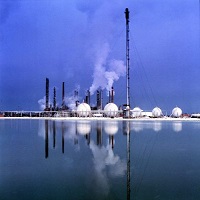
Texprocess has announced to honour new, future-oriented technological developments in the apparel and textile industry.
The Texprocess Innovation Award is now open for entries. Texprocess is the leading international trade fair for processing textiles and flexible materials which will be held from May 14-17, 2019, in Frankfurt am Main, in Germany.
Innovative personalities once again have the opportunity to win the Texprocess Innovation Award. The competition is now open for entries, which can be submitted until February 18, 2019, according to a press release.

US polyethylene (PE) exports are expected to continue increasing to high growth regions such as southeast Asia and Africa in 2019 as volumes to China decline precipitously in the face of tariffs.
The trade data is limited, going only through October 2018 so far, but a clear pattern has emerged.
US exports of the two grades of PE under tariff – high density PE (HDPE) and linear low density PE (LLDPE) – to China plunged by 55% from July 2018 to October 2018, according to the latest data from the US International Trade Commission (USITC) compiled by consultancy Accenture.
“However, higher growth regions in Vietnam, Malaysia, Indonesia and Africa have taken up more than that share.
Vietnam in particular is seeing strong exports of finished goods,” said Paul Bjacek, chemicals research lead at Accenture.
The second round of China tariffs, which targeted US HDPE and LLDPE, were implemented in August 2018 – thus the comparison from July figures to the latest data in October.
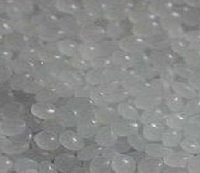
After a 2017 peak that bolstered hopes among Italian manufacturers, the first three quarters of 2018 proved to be disappointing for sales to the Russian market.
Italian exports to Russia of plastics and rubber machinery, equipment and moulds (sector total – 000 euro not updated)
Italian exports to Russia of plastics and rubber machinery, equipment and moulds(sector total – 000 euro not updated)
Analyses of ISTAT foreign trade data by the Statistical Studies Center of Amaplast show that exports to Russia fell by 19.6% with respect to the first nine months of 2017, with an aggregate value of just under €60m. Russia thus slipped from eleventh to twelfth in export market rankings for the sector.
Assuming 2018 year-end data confirm this trend, the downturn would be less dramatic than in the cycles of the past decade.
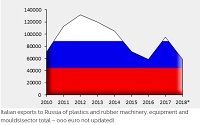
The United States is expected to churn out far more oil in 2019 than what international analysts originally forecasted.
The International Energy Agency, a Paris-based organization that helps coordinate energy policies for industrial countries, released its latest oil market report Friday, noting exceptional numbers for the U.S. fossil fuel industry.
The agency reported U.S. oil production is expected to rise by 1.3 million barrels a day in 2019. While this number is lower than the record-smashing 2.1 million increase producers enjoyed in 2018, it’s more than double what the IEA initially expected to see in 2019.

Plastic recycling rates are likely to be three times higher by 2030 than current levels, Gunter Stephan, head of Circular Economy Solutions at Austrian petrochemical and plastics producer Borealis, told S&P Global Platts Friday.
“Currently we see 10-12% of plastics in circulation being recycled. That is a relatively low figure. [It’s] definitely not enough or the level we think it should be,” Stephan said.
Borealis will look into further polyolefin recycling acquisitions in order to fulfill its aim of producing four times more recycled material by 2025, Stephan added.
Increasing recycling rates will depend on improvements in collection and sorting, although this is complicated by the diversity of systems in place across Europe, he said.
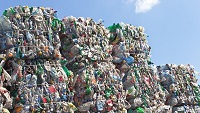
Industry experts in Vietnam feel the need for a concerted policy mechanism to help businesses successfully take advantage of benefits of the free trade agreements (FTAs) as a recent survey by the Vietnam Chamber of Commerce and Industry (VCCI) found that the rate of taking advantage of FTA benefits by enterprises in the country is falling.
The fall was attributed to shortcomings in enforcement of policies by government departments, strict rules of origin and lack of information by companies about commitments and how to exactly to derive full benefits of the FTAs, according to a news agency report.
Many experts also acknowledge lower competitiveness of their companies than that of partners, whose countries are also members of the FTAs.
